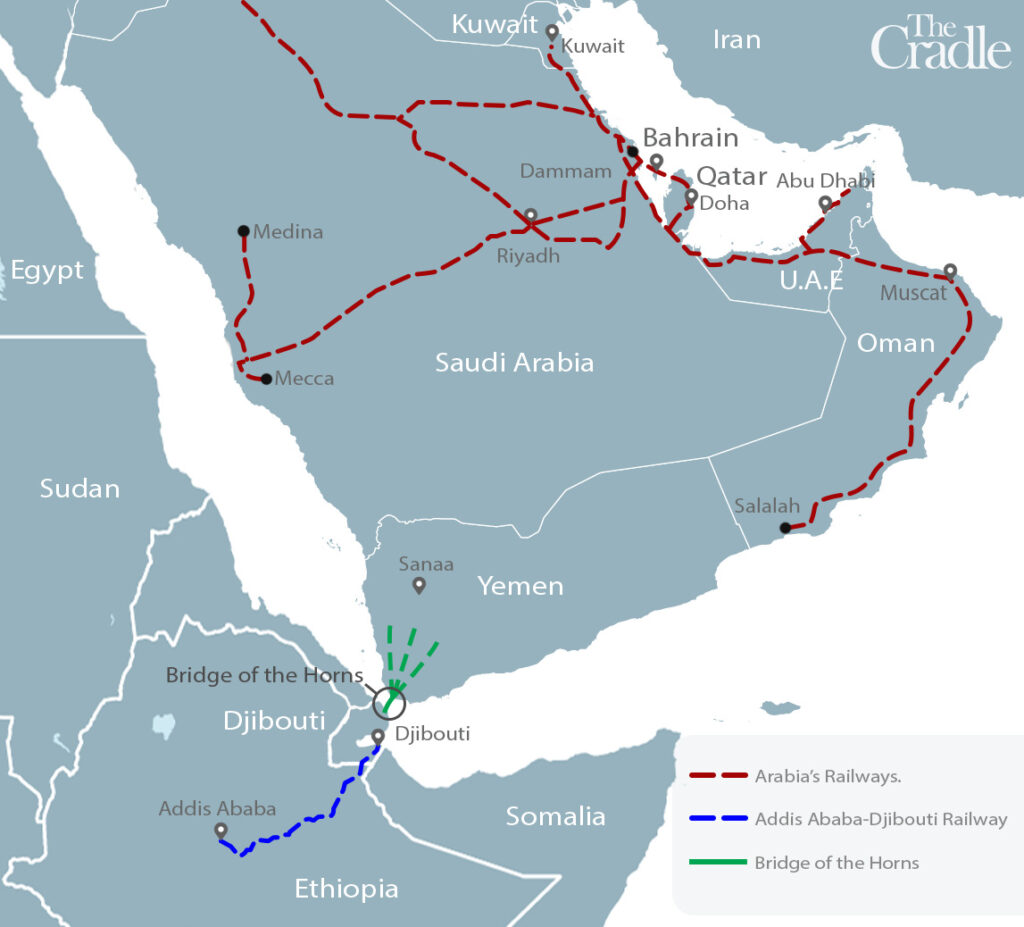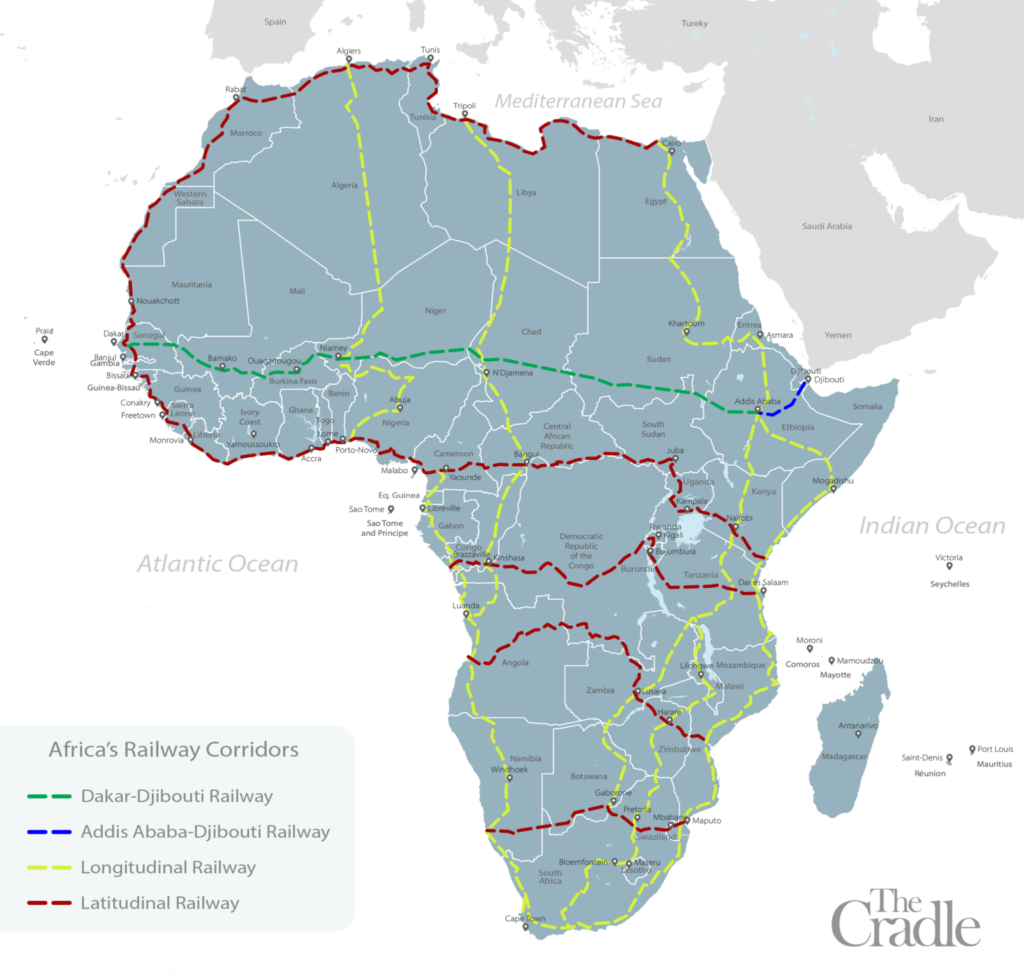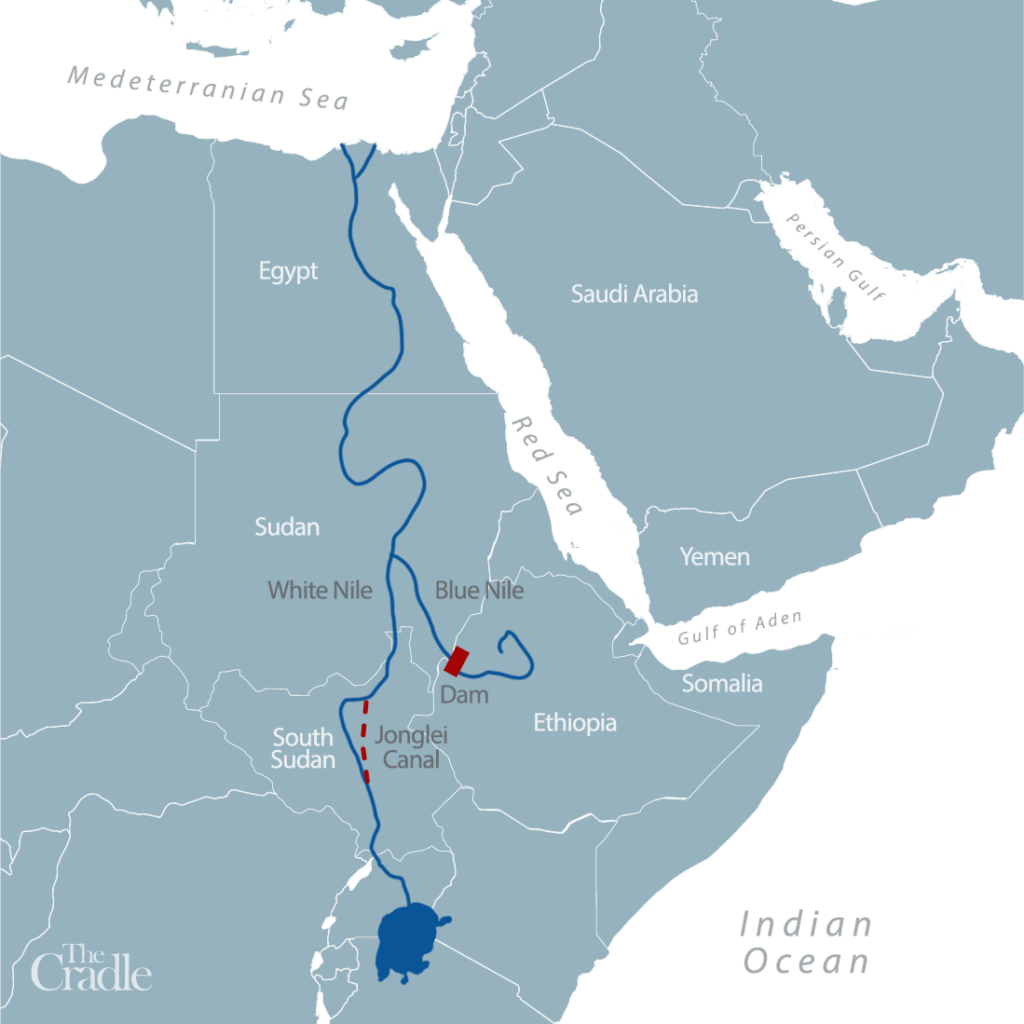The potential outbreak of a civil war sparked by a factional fight within Sudan’s military government poses a destabilization threat beyond the nation’s borders – into Africa, West Asia, and the emerging multipolar order. This suits the west just fine.
The story of Sudan is one of contrasts and contradictions. It is a country with tremendous potential and resources, yet it is plagued by poverty, conflict, and exploitation. The forces currently pulling Sudan apart are complex and multifaceted, but one thing is certain: the future of this nation is inextricably linked to the broader geopolitical landscape.
In order to fully comprehend the dynamics of this growing conflict, it is essential to look beyond Sudan’s borders. Attention must be paid to the broader geopolitical chemistry at play in the Horn of Africa, the Persian Gulf, the wider West Asian region, and even Ukraine.
Once the largest African nation with a population of 46 million and the third largest landmass, Sudan underwent a seismic shift in 2011 with a western-championed Balkanization, which divided the country into a “Muslim north” and a “Christian/Animist south.”
Extremes of wealth and poverty
The country is blessed with one of the most water-rich zones of the earth. The White and Blue Niles combine to form the Nile River, which flows northward into Egypt. Sudan’s water abundance is complemented by fertile soil and immense deposits of gold and oil.
The majority of these resources are located in the south, creating a convenient geological divide that western strategists have exploited for over a century to promote secession.
Despite its abundance of resources, Sudan is also one of the poorest nations in the world. Thirty-five percent of its population lives in extreme poverty, and a staggering 20 million people – or 50 percent of the population – suffer from food insecurity.
Although Sudan achieved political independence in 1956, like many other former colonies, it was never truly economically independent. The British utilized a strategy they had previously employed before leaving India in 1946 – divide and conquer – carving out “northern” and “southern” tribes, which led to civil wars that began months before Sudan’s independence in 1956.
General against General
After achieving independence in 2011, South Sudan was plunged into a brutal civil war that lasted for seven years. In the meantime, the north was hit by two coups; the first in 2019, which ousted President Omar al-Bashir, and the second in 2021, resulting in the current power-sharing military-led transitional government led by the president of the Sovereign Council, General Abdel Fattah al-Burhan, and his deputy, General Mohamed Hamdan Dagalo.
It is these two former allies-turned-rivals who now find themselves at the center of the conflict pulling Sudan in two opposing directions against the backdrop of the rapidly developing multipolar order.
Following the 2021 coup in Sudan, the two rival generals, Dagalo and Burhan, continued the momentum toward building large-scale projects. China funded a program to rehabilitate 4725 km of defunct colonial-era railways connecting the port of Sudan to Darfur and Chad.
A recent report by The Cradle suggests that if peace is maintained in the Horn of Africa and the new Iran-Saudi Arabia entente results in a durable peace process in Yemen, then the revival of the Bridge of the Horn of Africa project, which was last proposed in 2010, could become a reality.

Global South benefits from China-Russia co-op
In the past decade, the strategic partnership between China and Russia has been rapidly gaining favor among countries in the Global South. With the five BRICS member states accounting for over 3.2 billion people and 31.5 percent of global GDP, China and Russia have been providing financial support for major infrastructure, water, and energy projects while also backing the military needs of nations facing destabilization.
This has set the stage for a new era of geo-economics based on mutually beneficial cooperation. The Horn of Africa, which includes North and South Sudan, Ethiopia, Eritrea, Djibouti, Somalia, and Kenya, has been drawn into this positive dynamic of peace and development.
Ethiopia was able to end its 20-year conflict with neighboring Eritrea in 2018 and put down a potential civil war in November 2022. Furthermore, China’s diplomatic efforts facilitated a peace deal between Saudi Arabia and Yemen, while even Syria has seen a new hope emerge with the Arab League’s consensus that the US-led regime change doctrine against President Bashar al-Assad is over.
Sudan’s multipolar prospects
While the cause of the recent violence in Sudan remains uncertain, there are some things that are known. Prior to the recent outbreak of violence that claimed nearly 500 lives, Sudan was making significant strides toward consolidating its participation in the emerging multipolar alliance.
This included Sudan’s submission of a request to join the BRICS+ alliance along with 19 other nations, including resource-rich African states such as Algeria, Egypt, Nigeria, and Zimbabwe. Sudan’s decision to grant Russia full use of the Port of Sudan and engage in large-scale economic development with China, Russia, Egypt, and Kuwait was viewed as a positive development by many but drew threats of “consequences” from the US Ambassador John Godfrey.
In April 2021, agreements were signed to build a 900 km Egypt-Sudan railway connecting Aswan to Sudan’s Wadi Halfa and Khartoum. In June 2022, a Joint Ethiopia-Sudan government commissioned feasibility study was finished outlining a 1522 km standard gauge railway connecting Ethiopia’s Addis Ababa to Khartoum and the Port of Sudan.
In January 2022, China pledged financial and technical support to extend Kenya’s 578 km Mombasa-Nairobi railway to Uganda, South Sudan, and the Democratic Republic of Congo, as well as Ethiopia, where the Chinese-built Addis Ababa-Djibouti railway was completed in 2017. In this comprehensive project, extensions into Eritrea were included.

Railway lines in the African continent
The revival of the Jonglei Canal
Water and oil are both abundant resources in South Sudan, making the region’s security a top priority for Beijing’s African interests. Despite this abundance, the country’s infrastructure is poor, leaving it with no means to move these resources to market or use them for industrial purposes.
Water is just as geopolitically important as oil, if not more so. Thus, nearly forty years ago, the Jonglei Canal project was launched, which aimed to connect the White and Blue Nile in South Sudan, creating a 360 km canal that would divert water runoff from the Upper White Nile.

The canal would result in 25 million cubic meters of water per day being directed north into Egypt, while 17,000 square kilometers of swamp land would be transformed into agricultural land. The project would make the desert land bloom in Egypt and northern Sudan, turning the Sahel into the breadbasket of Africa. However, the project was stopped after 250 km had been dug by a German-made Bucketwheel 2300-ton, laser-guided digging machine.
The secessionist southern Sudanese Peoples’ Liberation Army (SPLA), led by western-educated John Garang De Mabior, launched a civil war in 1983 and kidnapped the machine’s operators, effectively halting the project. Notably, De Mabior’s 1981 doctoral dissertation in the US focused on the environmental damage that the Jonglei Canal would cause if not managed correctly.
Muddying the waters
Despite former President Omar al-Bashir’s attempts to restart this project since 1989 – until the 2011 partition of Sudan – constant destabilizations never permitted this project’s revival.
Things began turning around when, on February 28, 2022, South Sudan’s Vice President for Infrastructure, General Taban Deng Gai, called for the resumption of the Jonglei Canal, saying:
“We, the people in Bentiu and Fangak, have no place to stay. We may migrate to Eastern Nuer [eastern bank of the White Nile] because we have lost our land to flooding … People are asking who opened this huge volume of water because we never experienced this for decades. Of course, Uganda and Kenya opened the water, because Kampala was almost submerged because of the rising level of water from Lake Victoria. The digging of the Jonglei Canal that was stopped needs to be revised … For our land not to be submerged by flood, let’s allow this water to flow to those who need it in Egypt.”
General Taban referenced a UN Report detailing the 380,000 civilians displaced due to recent Sudd Wetland flooding and stated: “The solution lies in opening the waterways and resuming the drilling of the Jonglei Canal, based on the conditions and interest of South Sudan in the first place.”
General Taban had worked closely with South Sudan’s Minister of Water Resources and Irrigation Manawa Gatkouth, who had been the first to revive this project since the 2011 partition, submitting a proposal to the South Sudan Transitional Council in December 2021.
This proposal grew directly out of agreements to build cooperative water projects that Gatkouth reached with the Egyptian government in September 2020.
At the time, the Egyptian minister of water resources stated that “Egypt would increase the number of development projects for collecting and storing rainwater, with the aim of serving the South Sudanese people.”
Boots on the ground: The west returns
Expectedly, the Sudanese crisis has drawn attention due to the involvement of Anglo-American military forces. On 23 April, US President Joe Biden announced a War Powers Resolution to deploy troops in Sudan, Djibouti, and Ethiopia.
Where all other nations quickly moved to remove their citizens and diplomatic staff out of harm’s way, 16,000 US civilians have been left without support, providing a convenient excuse to insert US military forces into the picture to “restore order.”
US Undersecretary of State Victoria Nuland’s surprise appearance in the region on 9 March is also worth noting. One of the key architects of Ukraine’s transformation into a confrontational state against Russia, Nuland bragged during her visit that she discussed a “democratic transition in Sudan,” along with her humanitarian concerns for Somalia and Ethiopia.
Sudan, incidentally, is dependent on wheat imports, 85 percent of which originate from Ukraine and Russia.
To date, the National Endowment for Democracy (NED) funds over 300 separate civil society organizations in Africa, and at least 13 in Sudan – all of which use the tried and tested tactic of weaponizing pro-west local liberals to destroy their own nations under the cover of “democracy building,” human rights, and “anti-corruption” actions.
Conversely, the Global South increasingly views the rising multipolar powers China, Russia, and their growing coterie of allies, as advancing a non-hypocritical approach to supporting vital infrastructure projects and genuine national interests.
These new actors on the international stage prioritize the completion of large-scale water, food, energy, and transportation networks, which not only benefit all the involved parties, but also positively impact regions beyond national borders.
These transformative projects, such as Beijing’s ambitious, multi-trillion dollar Belt and Road Initiative (BRI), promote unity and progress by overcoming the tribalism, bigotry, poverty, and scarcity that the west has historically relied on to sow conflict. By increasing education levels and providing quality jobs across tribal and national boundaries, economic development ignites dignity and innovation that poses a threat to oligarchs with imperialistic tendencies.
While the causes of the Sudan crisis are not fully understood, it is clear that there are powerful forces at work seeking to shape the outcome for their own benefit. However, the answer to Sudan’s problems lies in a different approach – one that prioritizes infrastructure development and nation-building rather than narrow geopolitical interests and regime change.


